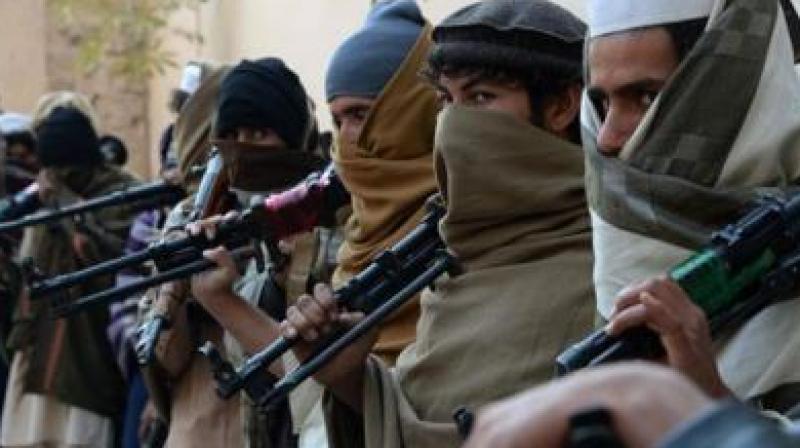Pakistan bans 2 militant outfits linked with Taliban and al-Qaeda
Jamaat-ul-Ahrar, a splinter group of Taliban and Lashkar-i-Jhangvi Al-Alami (LeJ) were banned after recent deadly attacks.

Islamabad: Pakistan has banned two militant groups linked with the Taliban and al-Qaeda for their involvement in several terror attacks across the country.
Jamaat-ul-Ahrar, a splinter group of the Tehreek-i-Taliban Pakistan, and Lashkar-i-Jhangvi Al-Alami (LeJ) were banned after recent deadly attacks in Baluchistan and Sindh provinces, including last week's assault at a sufi shrine in Balochistan that killed over 50 people.
A spokesman for the interior ministry said the decision to ban them was made only a few days ago, Dawn reported.
Referring to a revised list of banned groups available on the website of the National Counter Terrorism Authority, a top official in Sindh's security establishment said: "The two outfits were added to the list on November 11."
A security official said the government banned them once it became clear that they were not ready to shun violence.
The list also shows that Jamaat-ud Dawa has been listed since January 17, 2007 as group "under observation", which means its status can be changed as "banned" if there was enough evidence that it was involved in violence.
However, both Lashkar-e-Taiba and Jaish-e-Mohammad have been listed as banned entities since January 14, 2002.
The LeJ, a Sunni terrorist outfit, has roots in Punjab province and has a history of carrying out sectarian attacks in Baluchistan, particularly against the minority Shias.
The group recently claimed that it killed 61 people, mostly young cadets, during an attack on a police training centre in Quetta, the capital of the restive Balochistan province, in one of the deadliest terror attacks in Pakistan.
Two LeJ militants were recently arrested for killing Amjad Sabri, one of Pakistan's finest Sufi Qawwals, in a sectarian attack in June.
Jamaat-ul-Ahrar had claimed responsibility for a suicide attack at the government-run Civil Hospital in Quetta in August that had killed at least 75 people, mostly lawyers, and injured 115 others.

